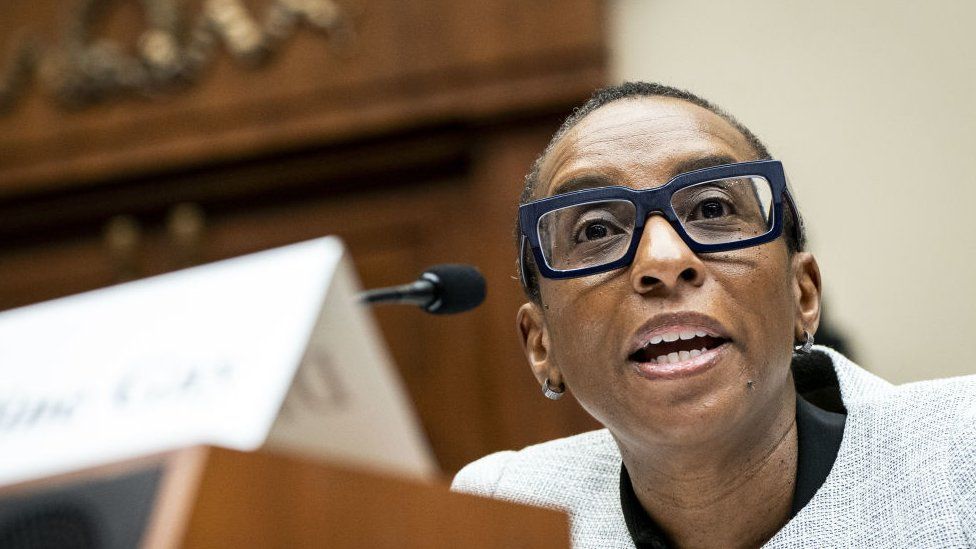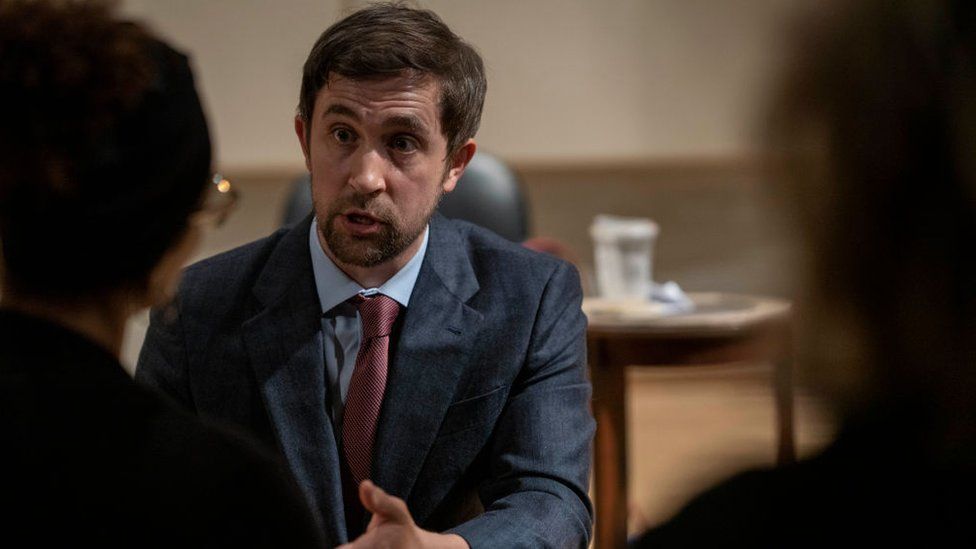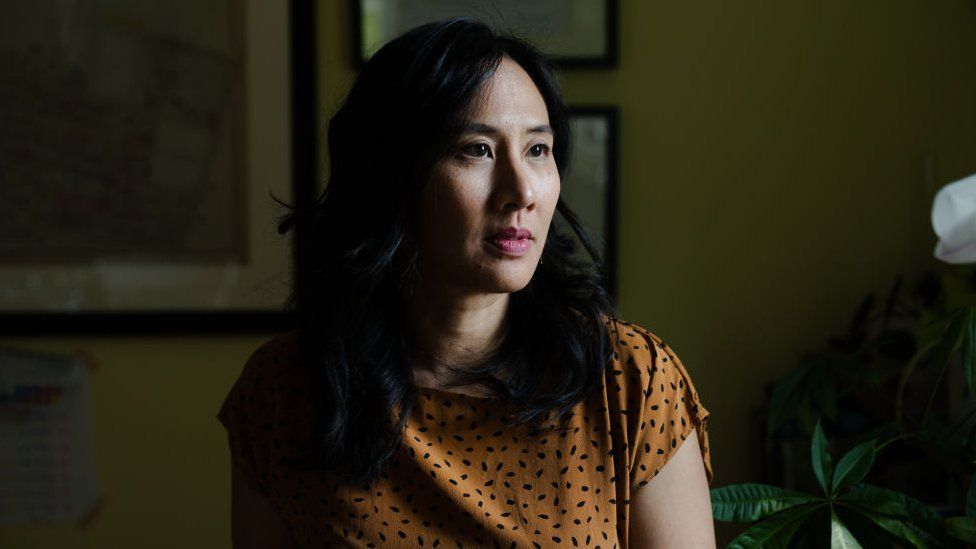Harvard’s Claudine Gay a casualty of campus culture wars
-
Published

Claudine Gay’s resignation as president of Harvard University is being celebrated as a high-profile victory by conservatives who have objected to her on ideological grounds since shortly after she took the job in July 2023.
Although allegations of plagiarism in her doctoral thesis were a factor in her exit from Harvard’s top job, her departure is more than just an academic dishonesty scandal.
Dr Gay landed in hot water in December for her participation in a congressional hearing panel about antisemitism on college campuses. The tepid, bureaucratic answers by the panellists, including Dr Gay, on how to deal with calls for Jewish genocide prompted the resignation of University of Pennsylvania president Liz Magill.
After that episode, Harvard offered continued support for Dr Gay’s tenure as president. But the battle was not over.
For her right-wing critics, Dr Gay – who is black – represents much of what they loath about modern American higher education, which they view as being dominated by a left-wing ideology that places a greater emphasis on ethnic and gender diversity than on academic rigour.
“It was a thinly veiled exercise in race and gender when they selected Claudine Gay,” Republican presidential candidate Vivek Ramaswamy, a Harvard graduate, wrote on social media after she announced her resignation.
New York Times columnist Bret Stephens, noting the 53-year-old Dr Gay’s relatively thin academic record that includes no published books and 11 journal articles, decried what he called the “social justice model of higher education”.

He wrote that the “intellectual rot” in American higher education “won’t stop spreading until universities return to the idea that their central purpose is to identify and nurture and liberate the best minds, not to engineer social utopias”.
The plagiarism allegations that led to Dr Gay’s resignation were surfaced by Christopher Rufo, a right-wing activist best known for the cultural battle over alleged teaching of Critical Race Theory in US schools.
In a December social media post, Mr Rufo laid out what is a now-familiar strategy for conservatives seeking to generate coverage of stories they believe the mainstream media are ignoring.
“We launched the Claudine Gay plagiarism story from the right,” Mr Rufo wrote. “The next step is to smuggle it into the media apparatus of the left, legitimizing the narrative to centre-left actors who have the power to topple her. Then squeeze.”
Mr Rufo’s efforts were amplified by media outlets that included the New York Post and the Washington Free Beacon, which on Monday published details of a new anonymous complaint filed with Harvard that included additional evidence of alleged plagiarism in Dr Gay’s published work.
In her resignation letter, Dr Gay said she was “subjected to personal attacks and threats fuelled by racial animus”, adding that the last few weeks had made clear that more must be done to “combat bias and hate in all its forms”.
It was a sentiment echoed, with more focused anger, by others on the left.
“So what we’ve learned is this: Bad-faith bigots pretending they’re concerned about antisemitism will happily use women of colour – especially black women – as a scapegoat and lightning rod for large systemic issues,” wrote novelist Celeste Ng on social media. “And that people invested in maintaining those systemic issues will comply.”

The current Harvard controversy reached its culmination with Dr Gay’s resignation, but the larger conservative effort to undermine – and ultimately supplant – liberal-dominated institutions of higher education continues.
In Florida, Governor Ron DeSantis – a current Republican presidential candidate – replaced the leadership of the New College of Florida, cancelling its diversity and inclusion programmes, firing faculty members and putting right-wing activists, including Mr Rufo, on its board trustees. His goal, in part, is to offer a conservative counterpoint to the modern liberal arts college.
Donald Trump, as part of his “Agenda 47” plan for a second term in office, has called for changes in how US universities are accredited, to emphasise “defending the American tradition and Western civilization”. He has also pledged to end equity programmes, force universities to reduce overhead costs and tax the endowments of schools that do not comply.
Harvard may ultimately replace Dr Gay with someone who has a similar academic and political disposition, who continues to defend ways to make Harvard’s student body diverse.
But by toppling the president of one of the nation’s most prestigious universities – the one involved in the Supreme Court fight over racial preferences in admissions earlier this year – conservatives have a substantial victory on which to build.
